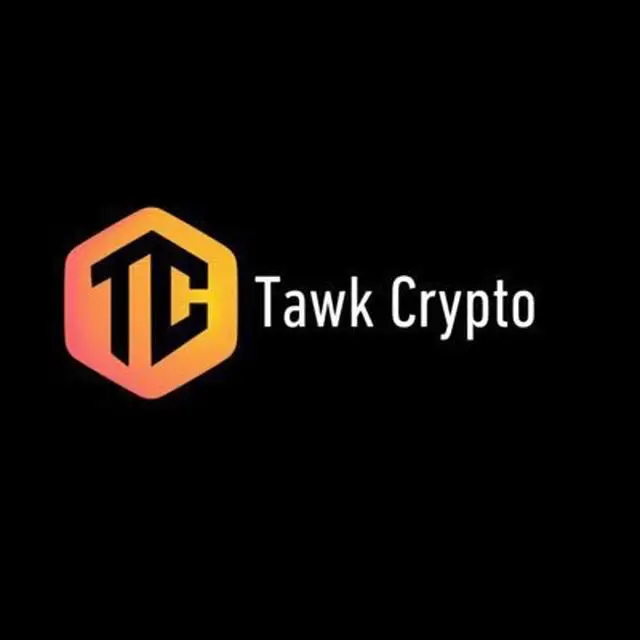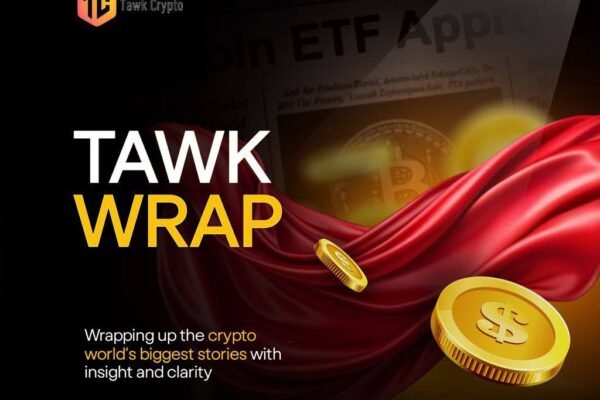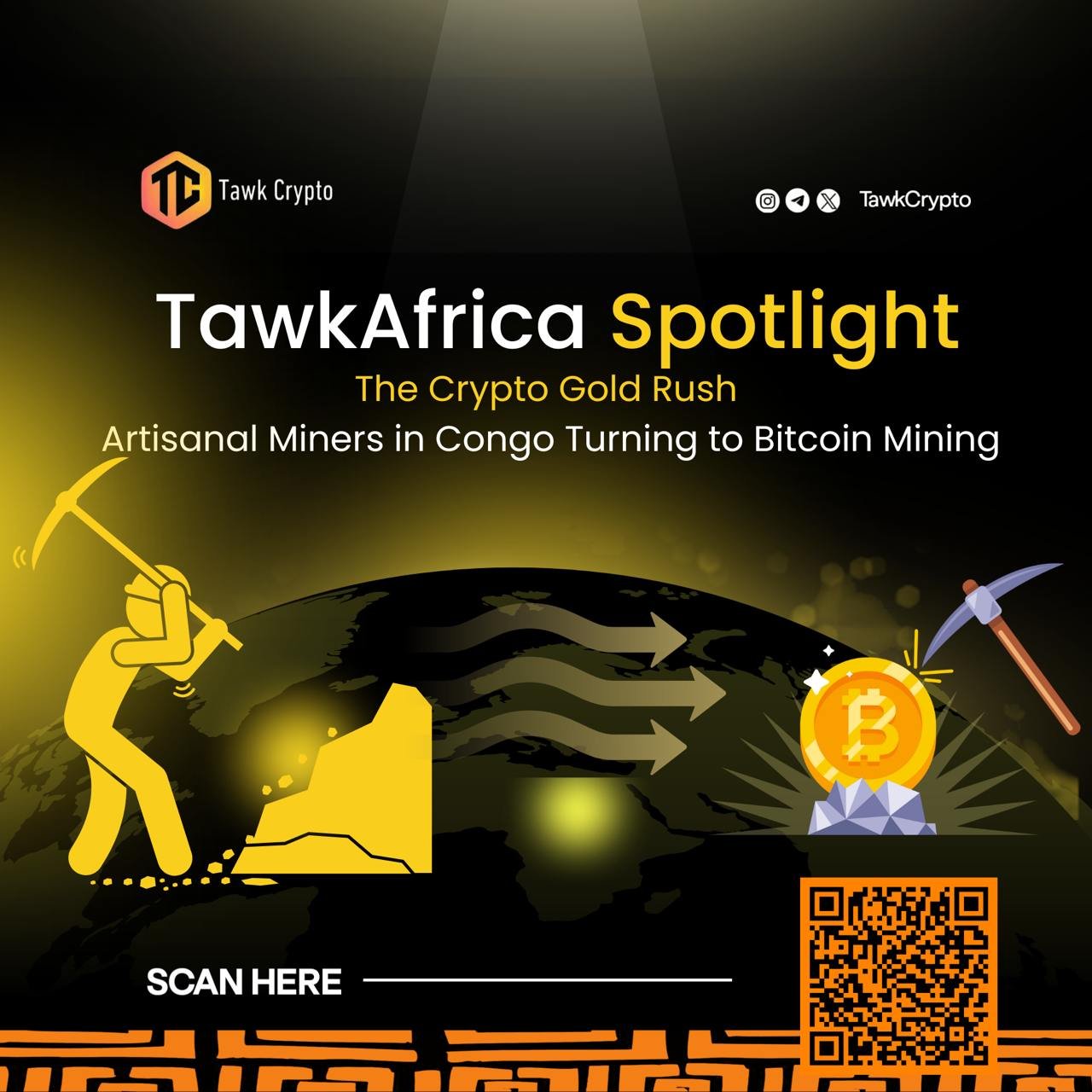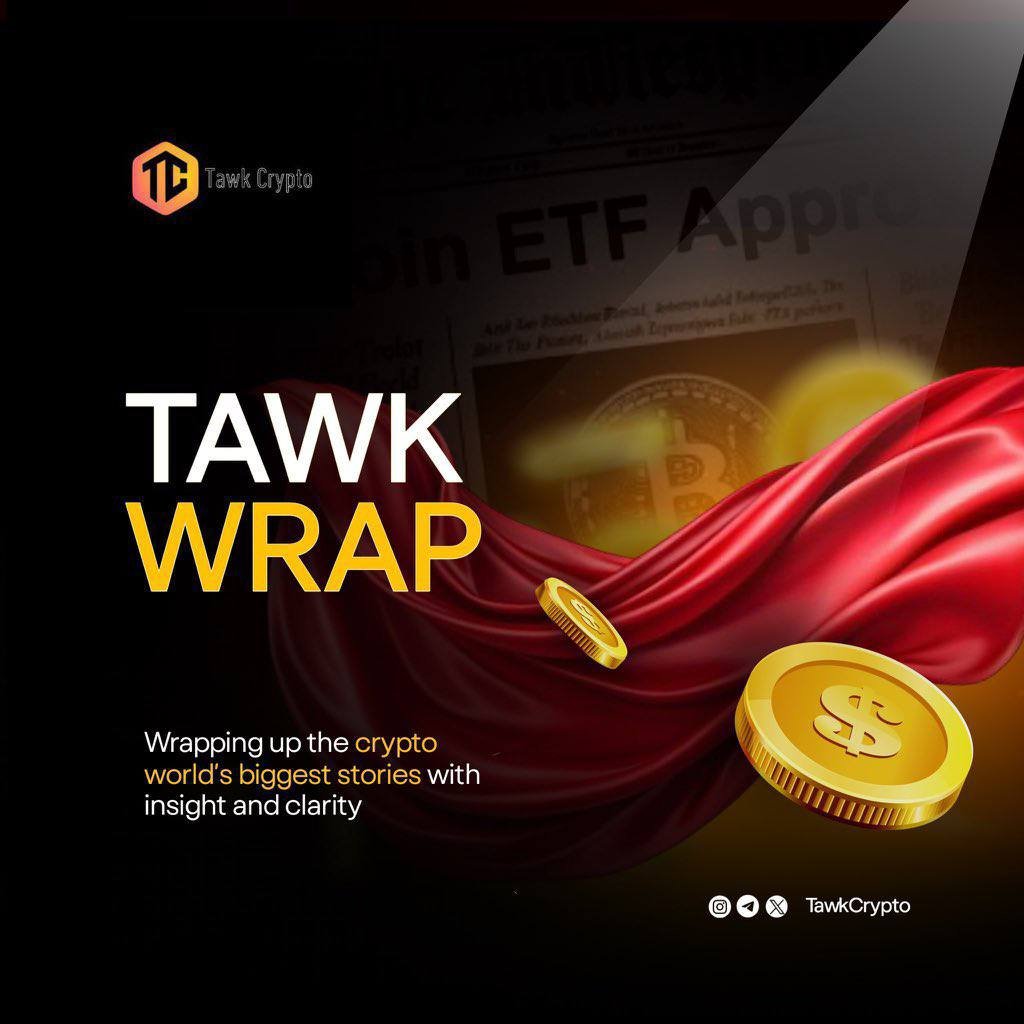
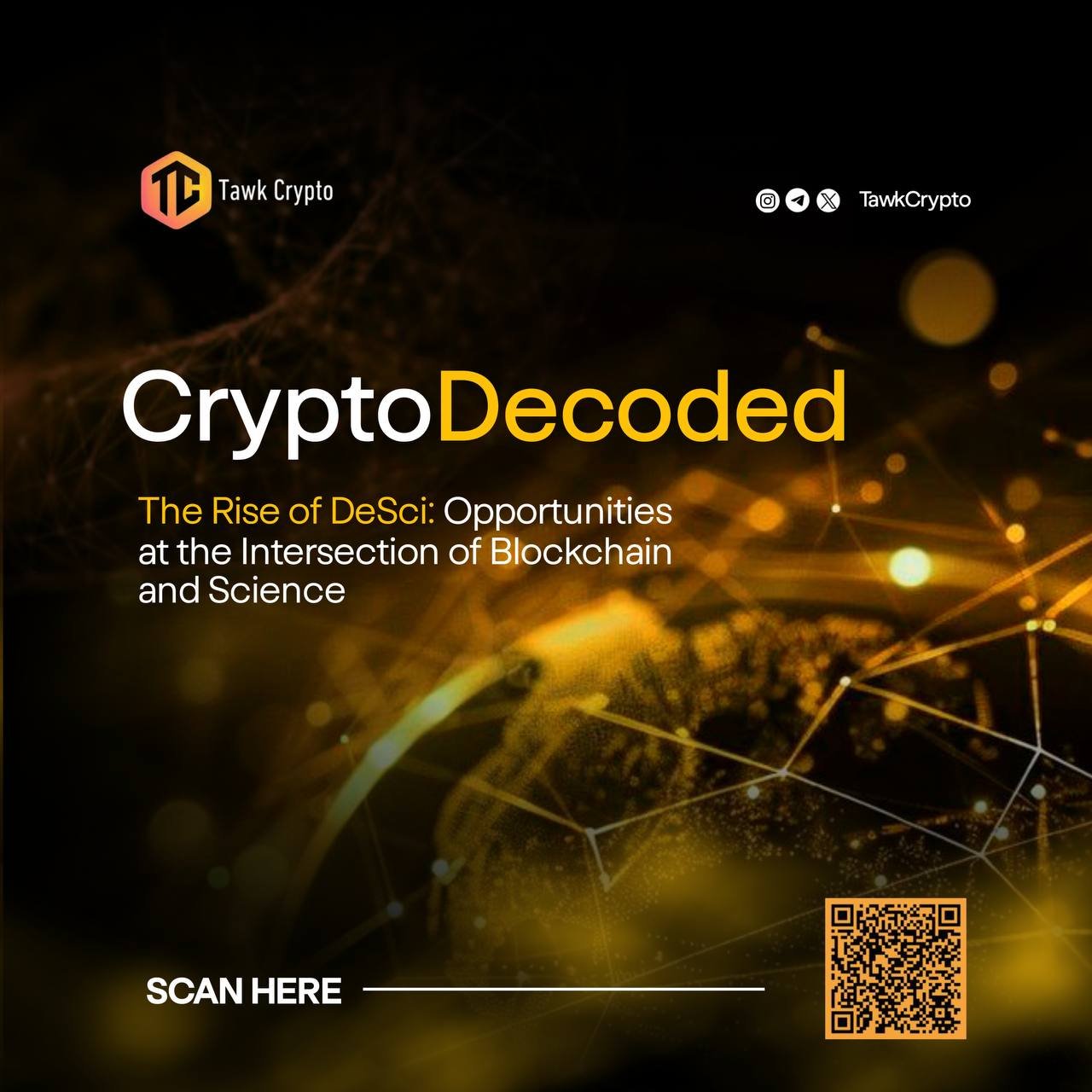
The Rise of DeSci: Opportunities at the Intersection of Blockchain and Science
Introduction
You’ve probably seen blockchain revolutionizing industries like finance, art, and even gaming. But here’s a twist you might not have expected—science is next in line for a major upgrade. Traditional scientific research is stuck in old-school systems that block collaboration, lack transparency, and make funding a nightmare for innovators.
That’s where DeSci (Decentralized Science) comes in! Think of it as blockchain meeting the lab coat. This movement is shaking things up by using Web3 tech to open doors for better funding, free access to data, and global collaboration. DeSci isn’t just about disruption—it’s about creating a fairer, faster, and more impactful way to do science that could benefit all of humanity. Let’s break it down.
What is DeSci?
Alright, let’s break it down—DeSci, short for Decentralized Science, is like the cool, tech-savvy cousin of traditional science. It’s a movement that’s flipping the script by integrating blockchain technology into the world of research and discovery. Imagine a world where scientists don’t have to jump through hoops for funding or rely on outdated systems to share breakthroughs. That’s what DeSci is all about.
At its core, DeSci is designed to decentralize the way science operates, making it more transparent, collaborative, and accessible. Picture this: researchers can crowdfund their experiments through DAOs (Decentralized Autonomous Organizations), cutting out the middlemen. Data can be stored on blockchains as immutable, tamper-proof records, ensuring everyone has access to the same reliable information. It’s a game-changer for anyone who’s passionate about science, innovation, or even just solving everyday problems through discovery.
Why Are Blockchain and Science Converging?
So, why is blockchain jumping into the lab? It turns out blockchain and science are like two puzzle pieces that fit perfectly together. Blockchain’s superpowers—decentralization, immutability, transparency, and tokenization—sync up seamlessly with the values that science should embody: objectivity, reproducibility, and collaboration.
The problem is, traditional science systems don’t always live up to those ideals. They’re bogged down by gatekeepers, lack of trust, and limited access to resources. Here comes blockchain, which breaks down these barriers. With blockchain, you don’t need to trust an institution to validate data—it’s already written into the code. Funding can go directly to researchers without all the red tape. Knowledge becomes democratized, meaning no more paywalls stopping people from accessing life-changing discoveries.
In short, blockchain is helping science get back to what it’s supposed to be: a force for global progress, free from unnecessary limitations. And the possibilities? They’re limitless.
The Problem with Traditional Scientific Research
Let’s be honest—scientific research, as important as it is, hasn’t kept up with the times. The traditional system is riddled with issues that slow down progress, limit access, and stifle innovation. Here’s where it all goes wrong:
Centralization and Gatekeeping in Science
The world of science is run like an exclusive club. Big players like universities, government agencies, and private corporations hold all the power. They decide what gets funded, what gets published, and even what discoveries the world hears about. This creates a massive bottleneck for innovation.
Here’s a jaw-dropping stat: around 60% of global research funding goes to just 10 wealthy countries. Meanwhile, researchers in developing nations—where there’s often the greatest need for scientific breakthroughs—are left scrambling for scraps. Even within well-funded systems, niche or groundbreaking ideas often get sidelined because they don’t fit the mainstream agenda.
Funding Bottlenecks and Inefficiencies
Securing research funding? Absolute nightmare. The grant process is painfully slow, ultra-competitive, and full of hoops to jump through. Researchers can spend months applying for grants, only to face rejection rates as high as 90% in fields like biomedical science. Imagine pouring all that time into writing proposals instead of actually doing research.
And don’t get us started on private funding—it tends to skew priorities toward projects with commercial potential, leaving fundamental research (the kind that leads to truly groundbreaking discoveries) struggling to survive. It’s not about what’s important for humanity; it’s about what’s profitable.
Lack of Transparency in Data and Results
Even when research does get published, it’s often locked behind ridiculously expensive paywalls, making it inaccessible to the public and even some scientists. The average cost to access a single journal article? Around $30 to $50. Multiply that by a dozen papers, and you can see how this system stifles knowledge sharing.
Then there’s the issue of flawed studies. The pressure to “publish or perish” forces researchers to prioritize quantity over quality, sometimes leading to data manipulation or rushed, incomplete results. Here’s a shocker: a 2015 study by Nature revealed that 50% of scientists couldn’t reproduce the results of their peers. If half of the research out there isn’t replicable, what does that say about the credibility of the system?
The Bottom Line?
Traditional science is stuck in a bureaucratic, profit-driven loop that holds humanity back. With centralized control, funding headaches, and a lack of transparency, it’s clear we need a better way forward. And this is exactly where DeSci comes in to shake things up.
DeSci: A Decentralized Approach to Science
It’s time we reimagine how science is done, with that, meet DeSci (Decentralized Science), the cool, forward-thinking sibling of traditional research. At its heart, DeSci is all about flipping the script by leveraging blockchain technology to make research more open, fair, and impactful. Instead of letting a handful of powerful institutions call the shots, DeSci creates a system where anyone—whether they’re a seasoned researcher or an independent innovator—can contribute, collaborate, and thrive.
So, what makes DeSci tick? Let’s break it down:
Core Principles of DeSci
- Decentralization
Say goodbye to the gatekeepers! DeSci is all about empowering individual researchers and smaller labs by removing the barriers set by traditional institutions. Whether you’re a PhD student in Ghana or an independent scientist in Brazil, you now have the tools to fund and share your work without begging for approval from centralized authorities. - Transparency
Imagine a world where all research is out in the open, accessible to anyone. With DeSci, your findings don’t get locked away behind a paywall. Data, experiments, and results are published transparently, so everyone can validate them, learn from them, or build on them. No more hidden agendas or questionable science—just open and honest collaboration. - Collaboration
Science thrives when brilliant minds work together. DeSci breaks down geographic and institutional walls, enabling global, interdisciplinary partnerships. A neuroscientist in Canada can seamlessly collaborate with a machine learning expert in India and a biologist in Kenya, sharing ideas and resources without the usual red tape. - Incentivization
Let’s face it, researchers don’t often get the recognition (or money) they deserve. DeSci changes that by using tokens and smart contracts to reward contributions. Did you peer-review a paper? Share a groundbreaking dataset? Validate an experiment? Congratulations, you just earned some tokens!
How Blockchain Technology Powers DeSci
Now, you might be wondering—how does blockchain make all of this magic happen? Here’s a quick crash course:
- Smart Contracts
Think of smart contracts as digital agreements that execute themselves automatically when conditions are met. In DeSci, they can handle funding distribution, ensuring researchers get paid the moment milestones are achieved. No bureaucracy, no delays, just instant payouts.
For example, let’s say a research DAO funds a study on renewable energy. The smart contract releases funds incrementally as each stage of the project is completed and verified.
- Tokenization
Tokens are the fuel that keeps DeSci running. They incentivize participation by rewarding users for their contributions—be it peer reviews, sharing data, or validating someone else’s findings. Tokens also give researchers and contributors a stake in the ecosystem, creating a sense of ownership and collaboration.
Imagine earning tokens for submitting a dataset on climate change or verifying a colleague’s study on gene therapy. Those tokens could then be exchanged for funding, access to other datasets, or even influence within a DeSci community.
- Immutable Ledgers
One of blockchain’s superpowers is its ability to create permanent, tamper-proof records. In DeSci, this means research data and findings can be stored on an immutable ledger, ensuring no one can manipulate results or “lose” inconvenient data.
For example, if a pharmaceutical company conducts clinical trials, the raw data can be stored on a blockchain. This guarantees transparency and prevents any shady practices, like cherry-picking favorable outcomes or suppressing negative results.
The Takeaway
DeSci is rewriting the rules of the scientific game. By combining blockchain’s transparency, automation, and incentivization with the collaborative spirit of science, it creates a system that’s fairer, faster, and more impactful. Whether you’re a researcher tired of jumping through hoops or just someone passionate about innovation, DeSci offers a glimpse into a future where science is truly for everyone.
Use Cases of DeSci
Decentralized Funding for Research (e.g., DAOs for Science)
Platforms like VitaDAO allow researchers to pitch their projects to a decentralized community for funding. Instead of relying on grants, researchers receive support from token holders who benefit from successful discoveries.
Open and Transparent Peer Review
Blockchain can host an open peer-review process, where reviews are recorded on-chain, ensuring accountability and fairness. This disrupts the traditional, opaque review systems that often favor established players.
Immutable and Accessible Data Storage
Projects like Arweave and Filecoin provide decentralized storage solutions where data is permanent, secure, and accessible, mitigating the risk of data loss or manipulation.
Tokenized Incentives for Collaboration and Innovation
DeSci platforms reward stakeholders with tokens for their contributions—whether it’s conducting experiments, validating data, or peer reviewing. This fosters a culture of shared innovation.
Key Opportunities in DeSci
DeSci isn’t just a buzzword—it’s opening up some game-changing opportunities that could completely revolutionize how science is done, especially for researchers who’ve been locked out of the system for too long. Let’s break down the ways DeSci is leveling the playing field and shaking things up.
1. Democratizing Research Access for Developing Nations
For researchers in underrepresented regions, like many parts of Africa, Latin America, or Southeast Asia, getting access to funding can feel like an impossible dream. Traditional systems favor institutions in wealthier countries, leaving brilliant ideas and innovations stuck on the sidelines.
DeSci. With decentralized platforms, researchers can bypass gatekeepers and connect directly with global funders, collaborators, or even community-driven DAOs (Decentralized Autonomous Organizations) that pool resources for promising projects. Imagine a young scientist in Uganda getting funded to study renewable energy or a researcher in Bangladesh accessing datasets from peers in Europe—all without dealing with red tape.
2. Unlocking New Funding Streams for Underfunded Disciplines
Let’s be honest: certain fields just don’t get the love (or money) they deserve. Climate science, rare disease research, or fundamental theoretical work often struggle to secure funding because they’re either too niche or not immediately profitable.
DeSci flips this narrative. Through crowdfunding mechanisms like DAOs, the global community can come together to support projects they believe in. Think of it as Kickstarter for groundbreaking science. Passionate individuals, not corporate boards, decide where the money goes. This opens doors for game-changing research that might otherwise never see the light of day.
3. Breaking Barriers to Collaboration Across Borders
Science works best when everyone brings their A-game, but traditional research systems are often limited by geography, politics, or institutional affiliations. DeSci removes these walls by using blockchain to create seamless, borderless collaboration.
Here’s how: researchers can tokenize their contributions—like data, peer reviews, or experimental validation—which means everyone gets rewarded fairly, no matter where they’re from. For example, a physicist in Brazil could partner with a data scientist in India and a biologist in South Africa on a project about disease modeling. DeSci makes it easy to track contributions and incentivize teamwork with token rewards.
4. Commercializing Intellectual Property through Tokenization
Patents and intellectual property (IP) are the lifeblood of innovation, but the traditional system for commercializing them is outdated and riddled with middlemen. DeSci is changing the game with tokenization.
What does that mean? Imagine a researcher developing a breakthrough in solar panel technology. Instead of licensing it to a corporation (and losing control), they could tokenize their IP, creating fractional ownership shares that anyone can invest in. This not only ensures the researcher gets paid directly but also allows the global community to back cutting-edge projects.
It’s a win-win: researchers gain funding without giving up control, and investors get a stake in innovations that could change the world.
Early Innovators in the DeSci Space: Projects To keep a Radar on
DeSci might be a new concept to some, but a handful of bold projects are already making waves and proving that decentralized science isn’t just a dream—it’s happening now. Let’s take a closer look at some early movers in the space and why they’re worth keeping an eye on.
Top DeSci Projects to Watch
1. VitaDAO: Longevity Science on the Blockchain

If you’re intrigued by the idea of extending human life, VitaDAO is a name you need to know. Focused on funding research into longevity and aging, VitaDAO operates like a decentralized Kickstarter for groundbreaking projects. It’s not just about raising money—it’s about creating a community where members actively contribute to deciding which longevity-focused studies get funded. With multiple projects already in the pipeline, VitaDAO is proving that the decentralized funding model works in science.
2. AntidoteDAO: Fighting Cancer with Transparency
Cancer research is one of the most critical areas of science, but funding is often opaque and riddled with inefficiencies. AntidoteDAO is flipping the script by creating a transparent, community-driven funding model for cancer research. Donors can directly track how their contributions are being used, ensuring accountability every step of the way. It’s a powerful example of how DeSci can bring integrity to medical research.
3. GenomesDAO: Own Your DNA Data

Ever wondered who profits from your genetic information when you take a DNA test? GenomesDAO gives users control of their DNA data, allowing them to securely store it and even monetize it by sharing it with researchers. Instead of corporations profiting off your genetic blueprint, you get to decide who uses it—and you get paid for it.
4. Data Lake: Your Medical Data, Your Rules
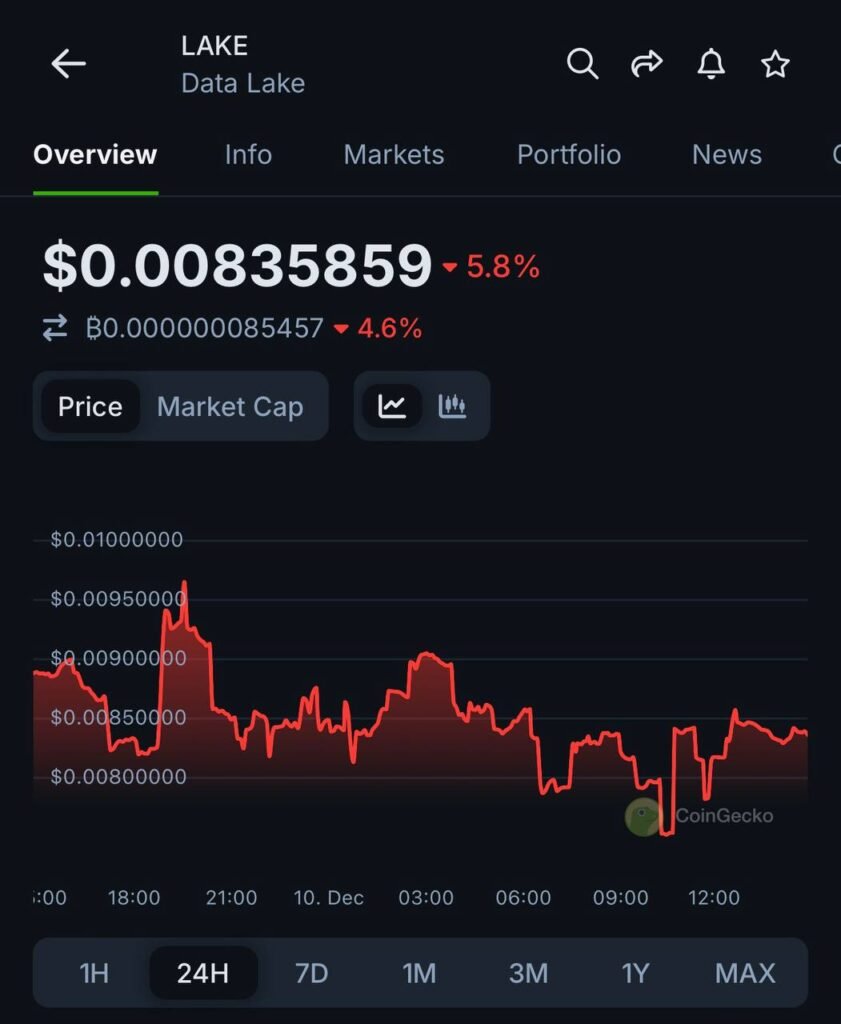
Medical data is incredibly valuable for research, but how often do patients see any benefit from sharing theirs? Data Lake is flipping the narrative by creating a platform where users can securely share their medical data with researchers and receive compensation for its use. This kind of system not only incentivizes data sharing but also ensures that individuals retain ownership of their most sensitive information.
5. $SciHub: The Meme Token for Open Science
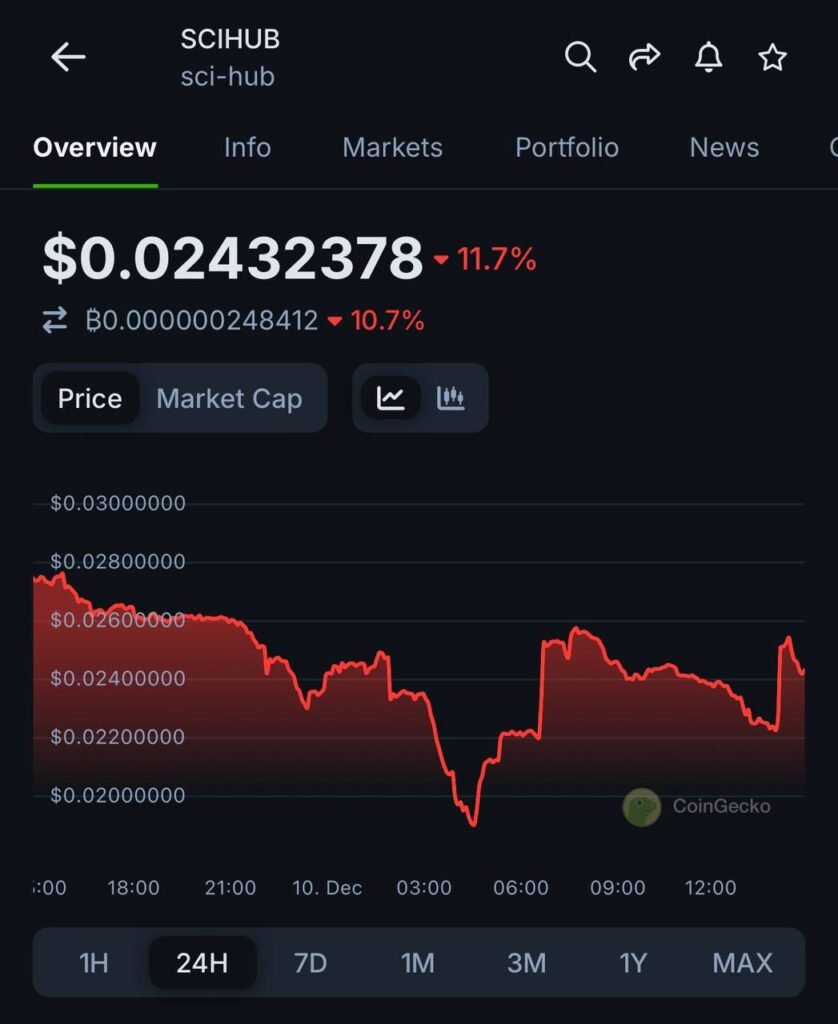
While $SciHub might sound like just another meme token, it’s a nod to the growing community pushing for open access in science. Backed by passionate believers in decentralized knowledge, $SciHub has gained attention as a symbol of the movement. It’s proof that even a meme can spark meaningful discussions about breaking down barriers in the scientific community.
Challenges Facing DeSci Adoption
DeSci might sound like the ultimate solution to modern science’s woes, but like any revolutionary movement, it comes with its challenges. Let’s break them down:
1. Regulatory Uncertainty: The Elephant in the Room
Governments are still trying to figure out how to regulate blockchain technology, and that uncertainty trickles down to DeSci. Without clear guidelines, projects often face legal gray areas. Are tokenized research contributions securities? How should decentralized funding models be taxed? These unanswered questions can make it tricky for DeSci projects to grow confidently. Plus, let’s face it—scientists don’t want to navigate a regulatory minefield when they’re trying to cure cancer or tackle climate change.
2. Skepticism and Adoption Barriers Within the Scientific Community
Not everyone in the scientific community is ready to jump on the blockchain bandwagon. Many researchers are skeptical, seeing blockchain as a buzzword rather than a solution. Others lack the technical know-how to navigate DeSci platforms or integrate these tools into their workflows. And let’s not forget the institutional inertia—universities and research organizations aren’t exactly known for embracing change quickly.
3. Technological and Cost Constraints: Growing Pains
Blockchain is powerful, but it’s not perfect. High transaction fees (remember those $50 gas fees on Ethereum?) can make small-scale research projects less feasible. Scalability is another hurdle—while platforms like Solana and Polygon offer lower costs and faster speeds, they’re still evolving. These tech limitations could hold DeSci back from reaching its full potential, especially in resource-strapped regions where every dollar counts.
The Future of DeSci: What’s Next?
Despite these challenges, the potential of DeSci is immense. Here’s what the future could hold:
1. Transforming Global Scientific Advancement
Imagine a world where researchers in rural Africa can access the same funding opportunities as those in Silicon Valley, or where scientists collaborate across borders to solve global issues like pandemics or climate change. DeSci could make this a reality. By breaking down institutional barriers and democratizing resources, DeSci has the potential to accelerate breakthroughs at a scale we’ve never seen before.
2. Web3 Ecosystems: The Backbone of DeSci
The Web3 world—think DAOs, decentralized identities, and tokenized economies—is perfectly aligned to help DeSci scale. DAOs, for example, can pool global funding for specific research fields, while decentralized identity tools can verify researchers and protect intellectual property. Tokenization, meanwhile, can incentivize collaboration by rewarding contributors with tangible value. With these tools, DeSci could evolve into a core pillar of the digital economy, reshaping how we fund, conduct, and share science.
Conclusion: Why DeSci Matters
DeSci isn’t just a movement; it’s a paradigm shift. It challenges the status quo of how science is done—removing gatekeepers, ensuring transparency, and opening doors for global collaboration. Instead of science being siloed in expensive journals or dominated by the priorities of a few wealthy institutions, DeSci puts power back in the hands of the researchers and the public.
How to Get Involved
The best part? You don’t have to be a scientist to join the DeSci revolution. Here’s how you can contribute:
- Support DeSci platforms like VitaDAO or Molecule by participating in funding rounds or governance.
- Spread the word about the movement and its potential to reshape science.
- Get involved in your field—whether you’re a researcher, investor, or just curious, there are plenty of ways to contribute to this exciting new frontier.
DeSci is a movement for everyone, and its success depends on collective action. The future of science is decentralized—are you ready to be part of it?
